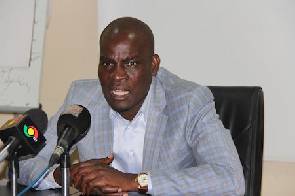 Lack of access to potable water and sanitation in various institutions in the northern region is affecting menstrual hygiene among young women in the region especially students.
Lack of access to potable water and sanitation in various institutions in the northern region is affecting menstrual hygiene among young women in the region especially students.
This has been identified as one of the considerable challenges facing Ghana as far as Water, Sanitation and Hygiene (WASH) are concerned.
These issues were raised at a programme held by the Catholic Relief Services in collaboration with WASH, University for Development Studies and the Desert Research Institute on the theme; Menstrual Hygiene Management interventions in schools for the girl child.
Madam Benedicta Kafari; the Northern regional School Health Education Programme (SHEP) decried the classification of menstruating girls as “impure” mostly in the northern region. “Menstruating women are stopped from such activities as cooking for the family and other household activities. They are also prevented from fasting during menstruation.”
She also revealed that teachers did not teach their female students how to handle themselves during menstruation and added that this lack of education contributes to the stigma associated with menstrual periods. She says the onus now rests with teachers to teach the their students about menstruation since the parents have failed to break their primitive mindsets on menstruation.
lack of education contributes to the stigma associated with menstrual periods. She says the onus now rests with teachers to teach the their students about menstruation since the parents have failed to break their primitive mindsets on menstruation.
rawgist.com reporter Michael Amoateng estimates that only about 52% of girls in the Northern region have an idea how to take care of themselves during their periods; a situation that leaves much to be desired.
Meanwhile over 70% of households in the three regions of the North have no toilet facilities; a situation that is aggravating the open defecation situation up north.





